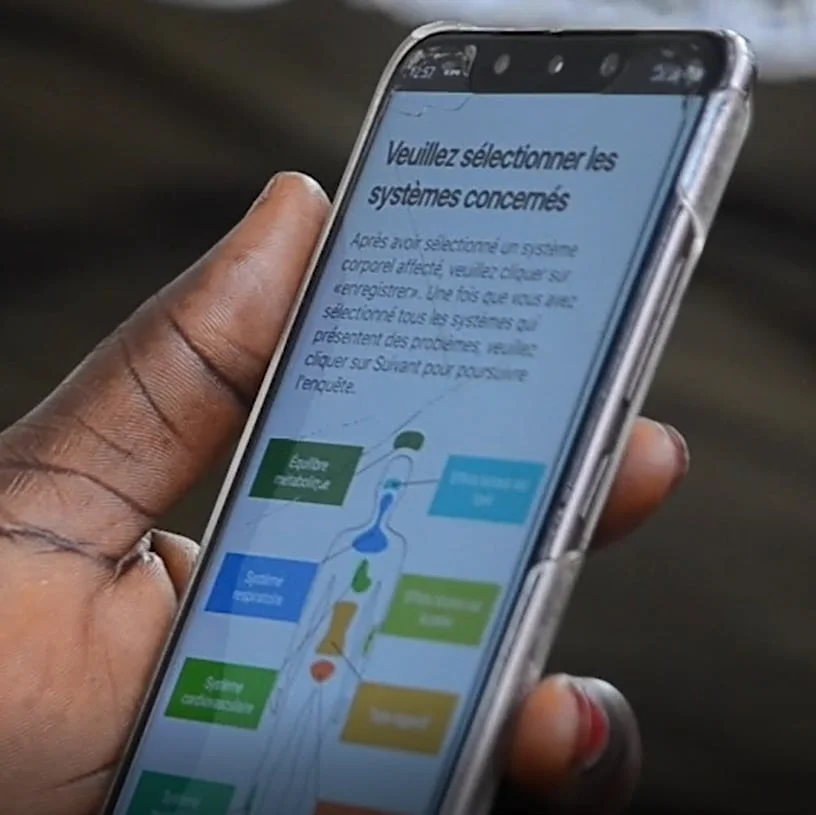Acute, unintentional pesticide poisoning is widespread among farmers and farm workers, with smallholder cotton farmers in developing countries particularly affected. Yet the full extent of health effects remains poorly understood.
Here, Better Cotton Council Member and Pesticide Action Network (PAN) UK International Project Manager, Rajan Bhopal, explains how a ground-breaking app stands to capture the human impact of pesticide poisoning. Rajan presented T-MAPP at the Better Conference in June 2022 during a lively ‘disruptors’ session.

Why is the issue of pesticide poisoning largely invisible?
The term ‘pesticides’ covers a huge range of products containing varied chemistry, meaning the many signs and symptoms of poisoning can be difficult for clinicians to diagnose if they are not aware of the issue. In addition, many farmers suffer health impacts without seeking treatment, particularly in remote, rural areas, where communities lack access to affordable medical services. Too many cotton producers accept these effects as part of the job. And we know that where incidents are diagnosed by clinicians, they’re often not recorded systematically or shared with government ministries responsible for health and agriculture.
Existing health monitoring surveys can be challenging to conduct, analyse and report on. That’s why we’ve developed T-MAPP – a digital monitoring system that accelerates data collection and provides rapid analysis that turns data into accurate results on how pesticides are affecting farmers’ lives.
Tell us more about your new pesticide app


Known as T-MAPP, our app makes data collection on pesticides poisoning more efficient, enabling field facilitators and others to collect comprehensive data on the products, practices and locations that are linked to high rates of serious pesticide poisoning. This includes detailed information farms and crops, use of protective equipment, particular pesticides and how they’re being applied, and health impacts within 24 hours of exposure. Once the data is collected and uploaded, T-MAPP allows survey managers to see analysed results in real-time via an online dashboard. Importantly, this knowledge can be harnessed to identify which pesticide products are causing poisoning and inform more targeted support.
What have you discovered so far?
Using T-MAPP, we have interviewed 2,779 cotton producers in India, Tanzania and Benin. Cotton farmers and workers are suffering widespread pesticide poisoning with significant impacts on wellbeing and livelihoods. On average, two in five had suffered pesticide poisoning in the past year. Severe symptoms of poisoning were common. Some 12% of farmers reporting severe effects that include, for example, seizures, loss of vision, or persistent vomiting.
What is being done with this information, or how could it be used?
It’s helping us understand the extent and severity of acute pesticide poisoning and find ways to tackle the issue. In some countries, regulators have used the app to monitor pesticides post-registration. In Trinidad, for example, certain pesticides could be banned for causing high rates of poisoning. Sustainability organisations are using the app to identify high risk practices and target their farmer capacity building efforts. In India, for example, the data has helped Better Cotton to focus an awareness campaign on the risks of pesticide mixtures. Elsewhere, similar surveys in Kurdistan led governments to taking action to prevent children’s exposure and involvement in pesticide spraying.
What is your message for brands and retailers?
Invest in understanding and addressing the health and environmental issues in the cotton sector, include misuse of pesticides, which are likely to be occurring in your supply chain. And by supporting high-quality capacity building programmes, you’ll be helping to protect farmers’ health, livelihoods and ability to cultivate cotton in the future.
Find out more
For more information on how Better Cotton addresses crop protection risks, visit our Pesticides and Crop Protection page.
For more information on T-MAPP, visit Pesticide Action Network (PAN) UK’s website.







































